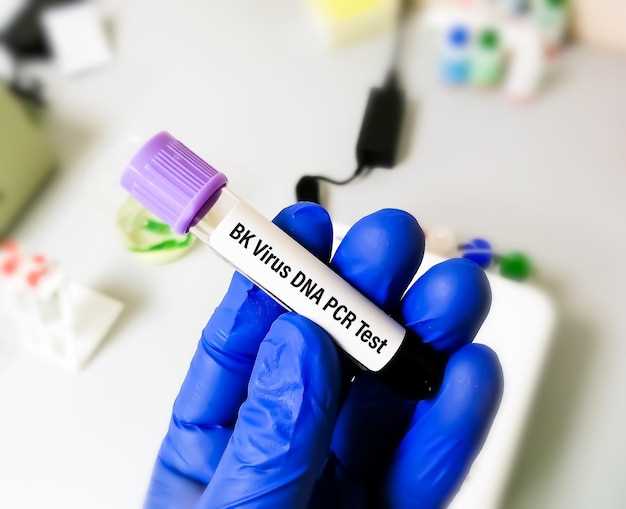
Atorvastatin is a medication that belongs to a group of drugs known as statins. Statins are commonly prescribed to lower cholesterol levels and reduce the risk of heart disease and stroke.
Atorvastatin works by blocking an enzyme in the liver that is responsible for producing cholesterol. By reducing cholesterol production, Atorvastatin helps to lower LDL (bad) cholesterol and increase HDL (good) cholesterol levels in the blood.
Lowering cholesterol levels is important for maintaining cardiovascular health. High levels of LDL cholesterol can lead to the formation of plaques in the arteries, which can restrict blood flow and increase the risk of heart attack and stroke.
Atorvastatin is available in various strengths and forms, including tablets, capsules, and oral suspensions. It is typically taken once daily, with or without food. It is important to follow your healthcare provider’s instructions and take Atorvastatin as prescribed.
In addition to cholesterol-lowering effects, Atorvastatin may also have other benefits, such as reducing inflammation and improving endothelial function, which can further contribute to cardiovascular health.
If you have been prescribed Atorvastatin or are considering starting statin therapy, it is important to discuss the potential benefits, risks, and side effects with your healthcare provider. They can help determine if Atorvastatin is the right medication for you and provide guidance on proper usage and monitoring.
About Atorvastatin
Atorvastatin is a medication that belongs to a class of drugs known as statins. It is commonly used to lower high levels of cholesterol and triglycerides in the blood. In addition to lowering lipid levels, Atorvastatin also helps to reduce the risk of heart attack, stroke, and other cardiovascular events.
Atorvastatin works by inhibiting an enzyme called HMG-CoA reductase, which is involved in the production of cholesterol in the liver. By blocking the action of this enzyme, Atorvastatin decreases the production of cholesterol and increases the liver’s ability to remove LDL cholesterol from the bloodstream.
Atorvastatin is typically prescribed as a part of a comprehensive treatment plan that includes a healthy diet, regular exercise, and other lifestyle modifications. It is important to take Atorvastatin exactly as prescribed by your doctor and to follow all instructions regarding diet and exercise.
It’s worth noting that Atorvastatin is a generic medication, which means it is not associated with any specific brand or manufacturer. This helps to make it more affordable and accessible to patients who need it. The generic form of Atorvastatin is just as effective as the brand-name version.
If you have been prescribed Atorvastatin or think it may be beneficial for you, it is important to discuss the potential benefits and risks with your doctor. They can provide you with personalized advice and guidance based on your individual medical history and current health status.
What is Atorvastatin?
Atorvastatin is a medication that belongs to a group of drugs called statins. It is commonly prescribed to lower cholesterol levels in the blood and reduce the risk of heart disease. Atorvastatin works by inhibiting an enzyme called HMG-CoA reductase, which plays a key role in the production of cholesterol in the liver. By blocking the action of this enzyme, Atorvastatin helps to decrease the amount of cholesterol that is made in the body.
How Does Atorvastatin Work?
When you take Atorvastatin, it is absorbed into your bloodstream and then distributed to your liver. Once in the liver, Atorvastatin blocks the activity of HMG-CoA reductase, which is responsible for producing cholesterol. By inhibiting this enzyme, Atorvastatin helps to lower the levels of LDL cholesterol, also known as “bad” cholesterol, in your blood.
In addition to lowering LDL cholesterol, Atorvastatin also modestly raises levels of HDL cholesterol, also known as “good” cholesterol. HDL cholesterol helps to remove LDL cholesterol from your blood, reducing the risk of plaque buildup in your arteries.
Atorvastatin also has anti-inflammatory effects, which can further protect against heart disease and other inflammatory conditions.
It is important to note that Atorvastatin should be used in conjunction with a healthy lifestyle, including a balanced diet and regular exercise, to achieve optimal results in managing cholesterol levels and reducing the risk of heart disease.
If you have been prescribed Atorvastatin, it is essential to take it as directed by your healthcare provider and follow up with regular monitoring of your cholesterol levels. Your doctor may also recommend regular blood tests to check for any potential side effects of Atorvastatin.
How Does Atorvastatin Work?
Atorvastatin is a medication that belongs to a group of drugs called statins. It works by blocking the enzyme HMG-CoA reductase, which is responsible for producing cholesterol in the liver. By inhibiting this enzyme, Atorvastatin helps to lower the levels of LDL (bad) cholesterol in the blood while increasing the levels of HDL (good) cholesterol.
Reducing LDL Cholesterol
Atorvastatin primarily targets LDL cholesterol, which is known as the “bad” cholesterol because it can build up in the walls of arteries and form plaques. High levels of LDL cholesterol can narrow the arteries and restrict blood flow, leading to various cardiovascular problems, including heart attacks and strokes.
By inhibiting HMG-CoA reductase, Atorvastatin reduces the liver’s production of cholesterol, thereby lowering the levels of LDL cholesterol in the blood. This helps to prevent the formation of plaques and reduces the risk of cardiovascular complications.
Increasing HDL Cholesterol
In addition to lowering LDL cholesterol, Atorvastatin also increases the levels of HDL cholesterol, which is known as the “good” cholesterol. HDL cholesterol helps to remove excess cholesterol from the bloodstream and transport it back to the liver for disposal.
By promoting the production of HDL cholesterol, Atorvastatin further enhances the removal of LDL cholesterol from the arteries, reducing the risk of plaque formation and cardiovascular disease.
Overall, Atorvastatin works by effectively lowering LDL cholesterol and increasing HDL cholesterol levels, helping to improve overall cardiovascular health.
Benefits of Atorvastatin

Atorvastatin is a medication that belongs to a group of drugs called statins. It is primarily used to lower cholesterol levels and reduce the risk of heart disease.
1. Lowers cholesterol levels
Atorvastatin works by inhibiting an enzyme in the liver that is responsible for producing cholesterol. By reducing the production of cholesterol, it helps to lower the overall cholesterol levels in the blood.
2. Reduces the risk of heart disease
Elevated cholesterol levels are a major risk factor for heart disease. By lowering cholesterol levels, Atorvastatin helps to reduce the risk of developing conditions such as heart attacks, strokes, and other cardiovascular diseases.
3. Improves overall cardiovascular health
By lowering cholesterol levels, Atorvastatin helps to improve the overall health of the cardiovascular system. It can help to prevent the narrowing and hardening of the arteries, which can lead to high blood pressure and other heart-related issues.
4. Prevents the formation of blood clots
Atorvastatin has been shown to have anti-inflammatory effects, which can help to prevent the formation of blood clots. Blood clots can block blood flow to the heart or brain, leading to heart attacks or strokes. By reducing inflammation, Atorvastatin can help to prevent these potentially life-threatening events.
5. Reduces the risk of future cardiovascular events
For individuals who have already had a heart attack or stroke, Atorvastatin can help to reduce the risk of future cardiovascular events. It has been shown to significantly lower the risk of recurrent heart attacks and strokes in these individuals.
Overall, Atorvastatin offers a range of benefits for individuals with high cholesterol levels and those at risk of heart disease. It can help to lower cholesterol levels, reduce the risk of heart disease, improve cardiovascular health, prevent blood clots, and reduce the risk of future cardiovascular events.
Possible Side Effects
While taking Atorvastatin, you may experience some side effects. It is important to note that not everyone will experience these side effects, and some may experience none at all. However, it is still important to be aware of the potential side effects that may occur.
Common Side Effects
Some common side effects of Atorvastatin may include:
- Headache
- Muscle pain or weakness
- Nausea or vomiting
- Stomach pain
- Diarrhea
- Joint pain
- Difficulty sleeping
If you experience any of these side effects, it is recommended to speak with your doctor or pharmacist. They can provide guidance or suggest remedies to help alleviate these symptoms.
Serious Side Effects

While rare, there are some serious side effects that have been reported with the use of Atorvastatin. These include:
- Unexplained muscle pain, tenderness, or weakness
- Dark-colored urine
- Yellowing of the skin or eyes
- Severe stomach pain
- Fever or chills
- Chest pain
- Difficulty breathing or swallowing
If you experience any of these serious side effects, it is important to seek medical attention immediately. These symptoms may indicate a more serious underlying condition that requires immediate treatment.
It is also worth noting that in rare cases, Atorvastatin has been associated with the development of liver problems. If you have a history of liver disease or excessive alcohol consumption, it is especially important to monitor for any signs of liver problems while taking Atorvastatin.
Remember, this is not an exhaustive list of all possible side effects. If you have any concerns or questions about the potential side effects of Atorvastatin, it is best to consult with your healthcare provider.
Disclaimer: The information provided in this post is for informational purposes only and is not intended as a substitute for professional medical advice, diagnosis, or treatment. Always seek the advice of your physician or other qualified health provider with any questions you may have regarding a medical condition.
How to Take Atorvastatin
It is important to take Atorvastatin exactly as prescribed by your doctor. Follow the instructions provided on the prescription label and do not take more or less of the medication than recommended.
Atorvastatin is usually taken once a day, with or without food. It is best to take it at the same time each day to help you remember. If you are also taking any other medications, it is important to follow your doctor’s instructions on how to take them along with Atorvastatin.
Swallow the tablet whole with a glass of water. Do not crush, chew, or break it. If you have difficulty swallowing, talk to your doctor or pharmacist who may be able to provide alternative options.
It is important to continue taking Atorvastatin even if you feel well. This medication is often used to manage long-term conditions, such as high cholesterol, and it may take several weeks or months to notice an improvement in your symptoms. Stopping the medication without consulting your doctor may cause your cholesterol levels to increase again.
If you forget to take a dose of Atorvastatin, take it as soon as you remember. However, if it is close to the time for your next dose, skip the missed dose and continue with your regular dosing schedule. Do not take a double dose to compensate for a missed one.
Store Atorvastatin at room temperature, away from moisture and heat. Keep the medication out of reach of children and pets.
If you have any questions or concerns about how to take Atorvastatin, speak to your doctor or pharmacist for further guidance. They can provide personalized advice based on your specific needs and medical history.
